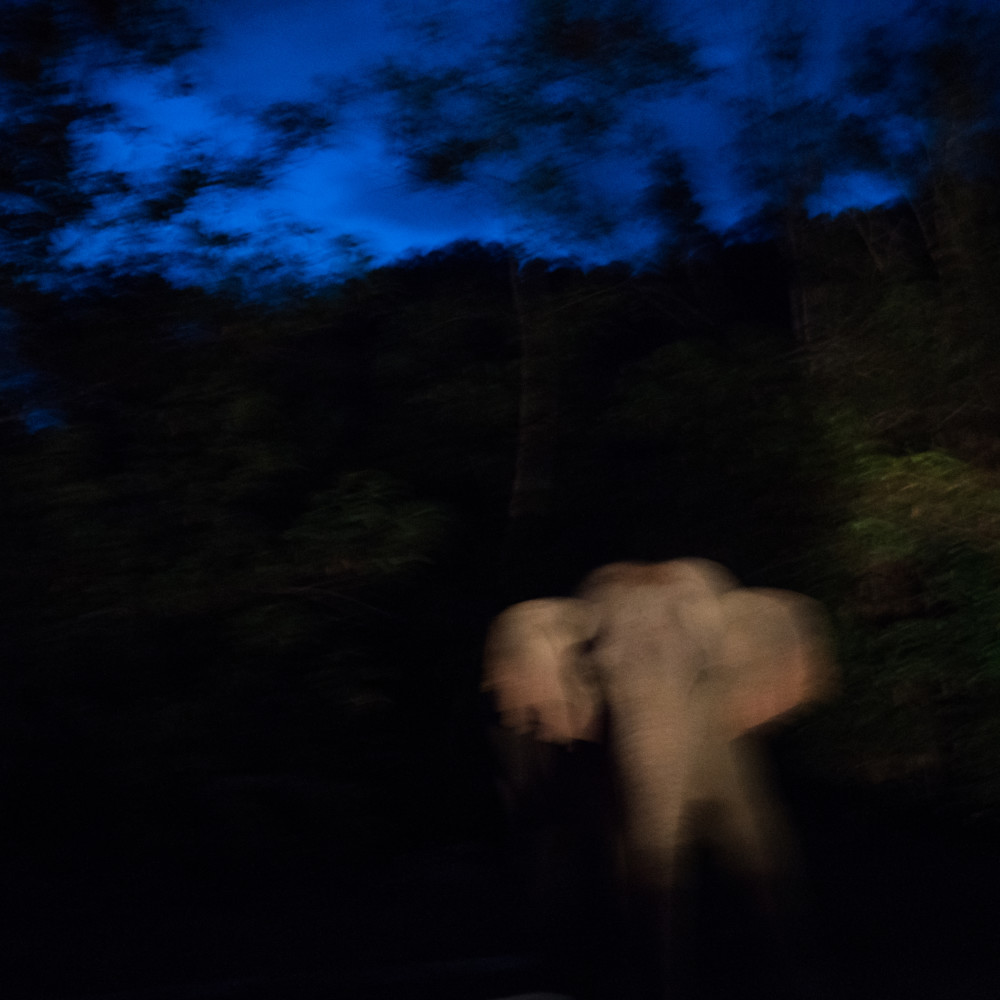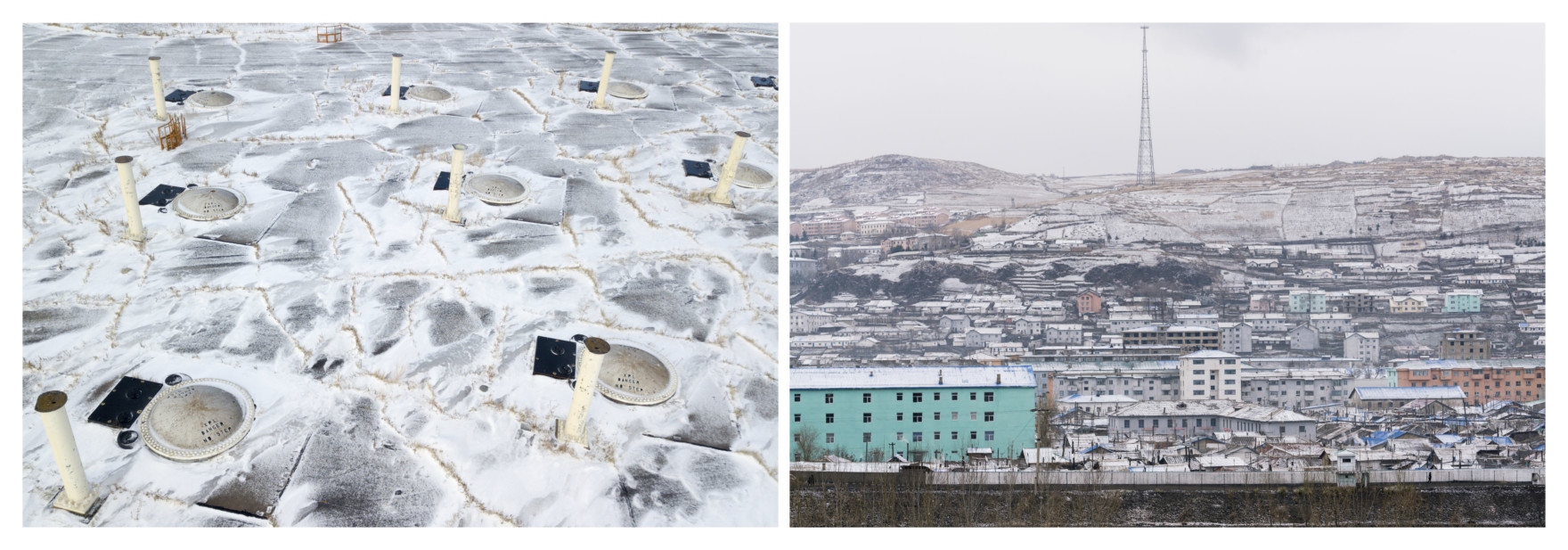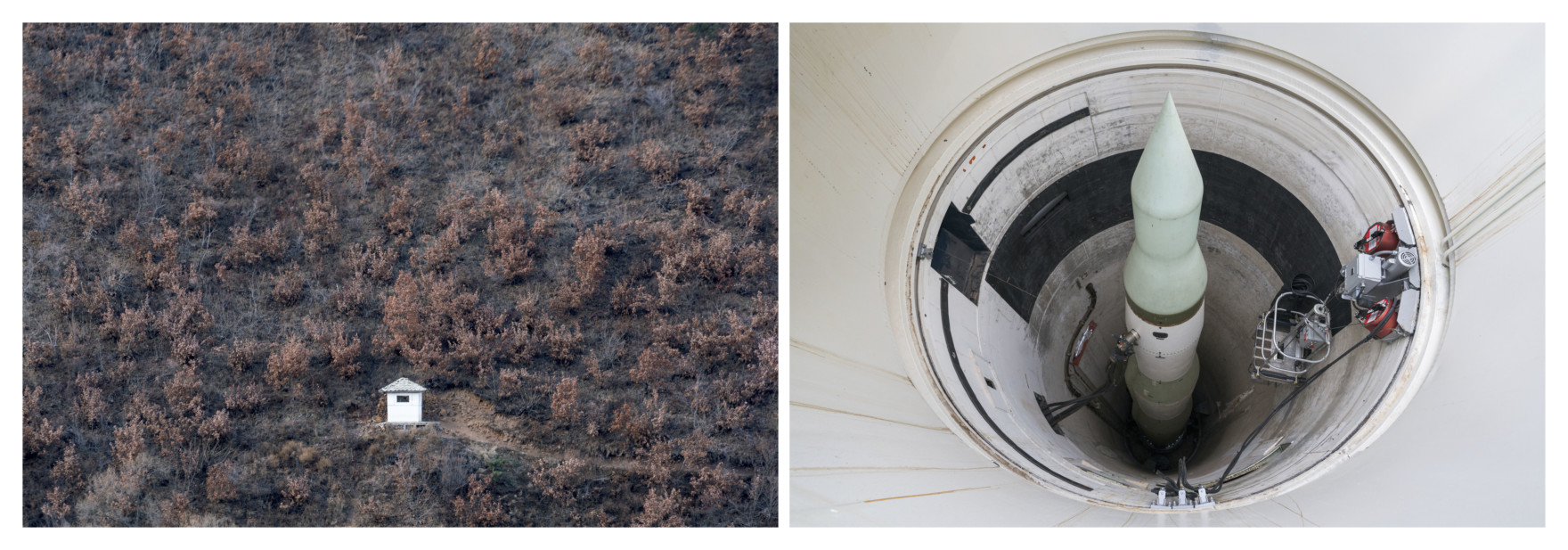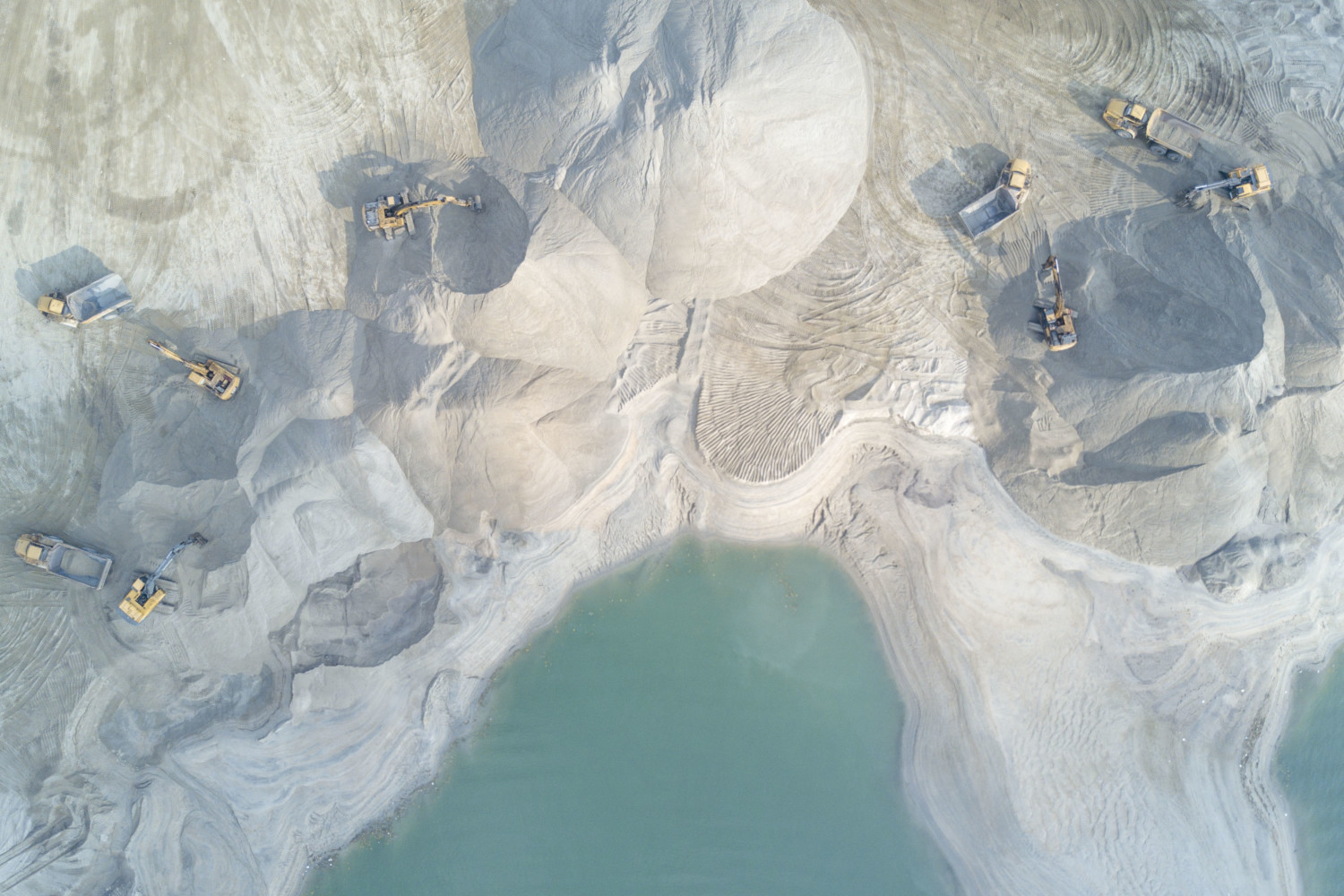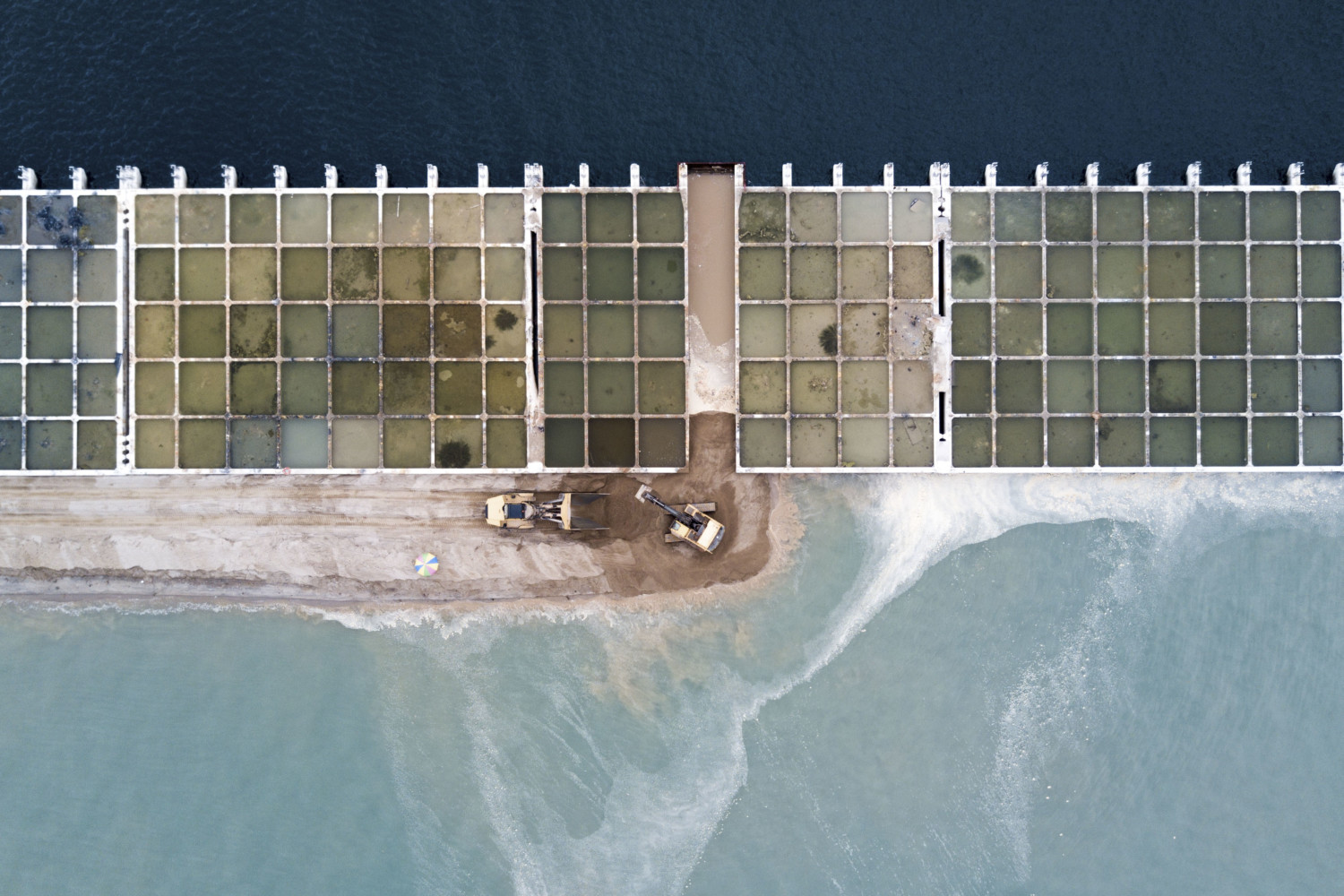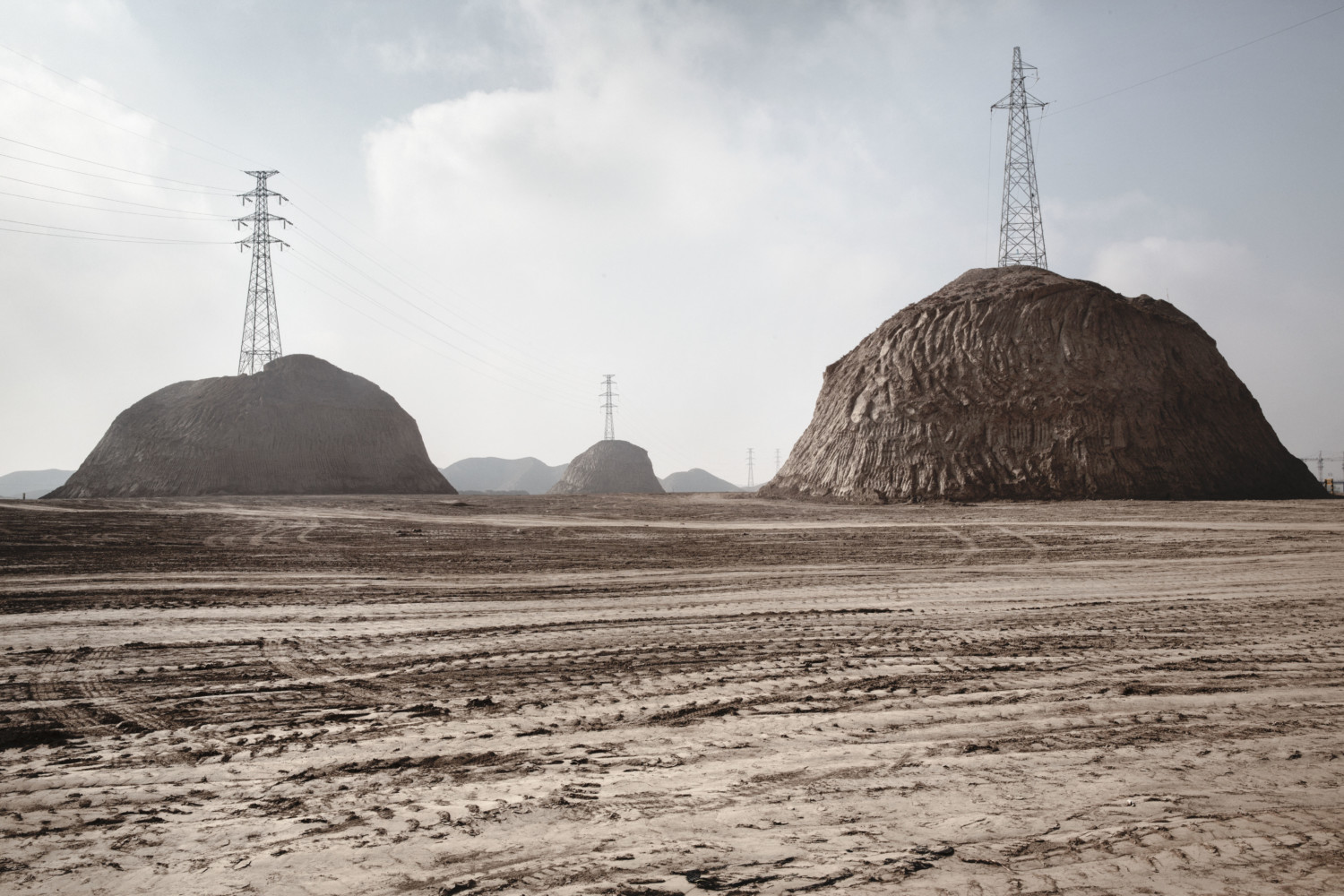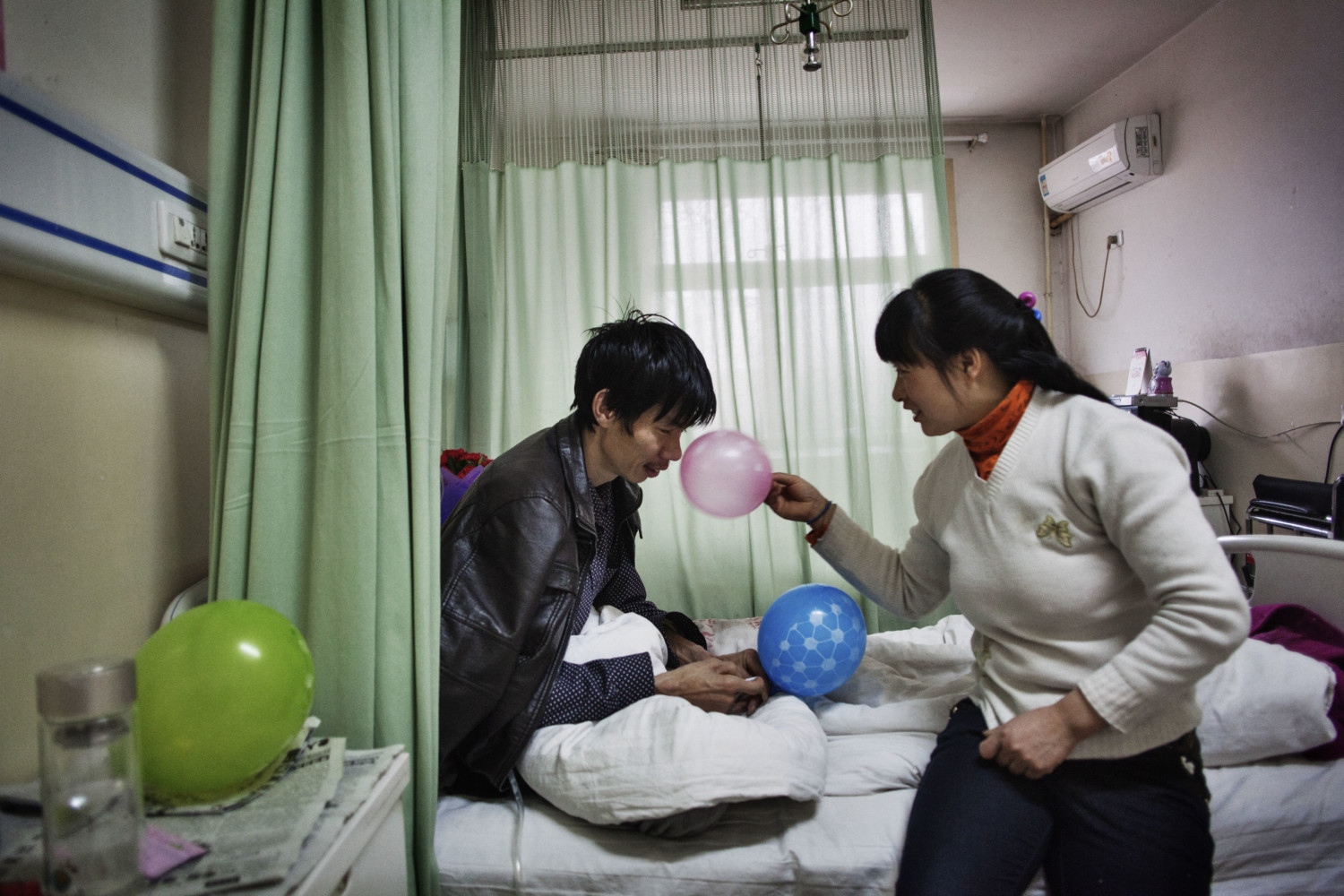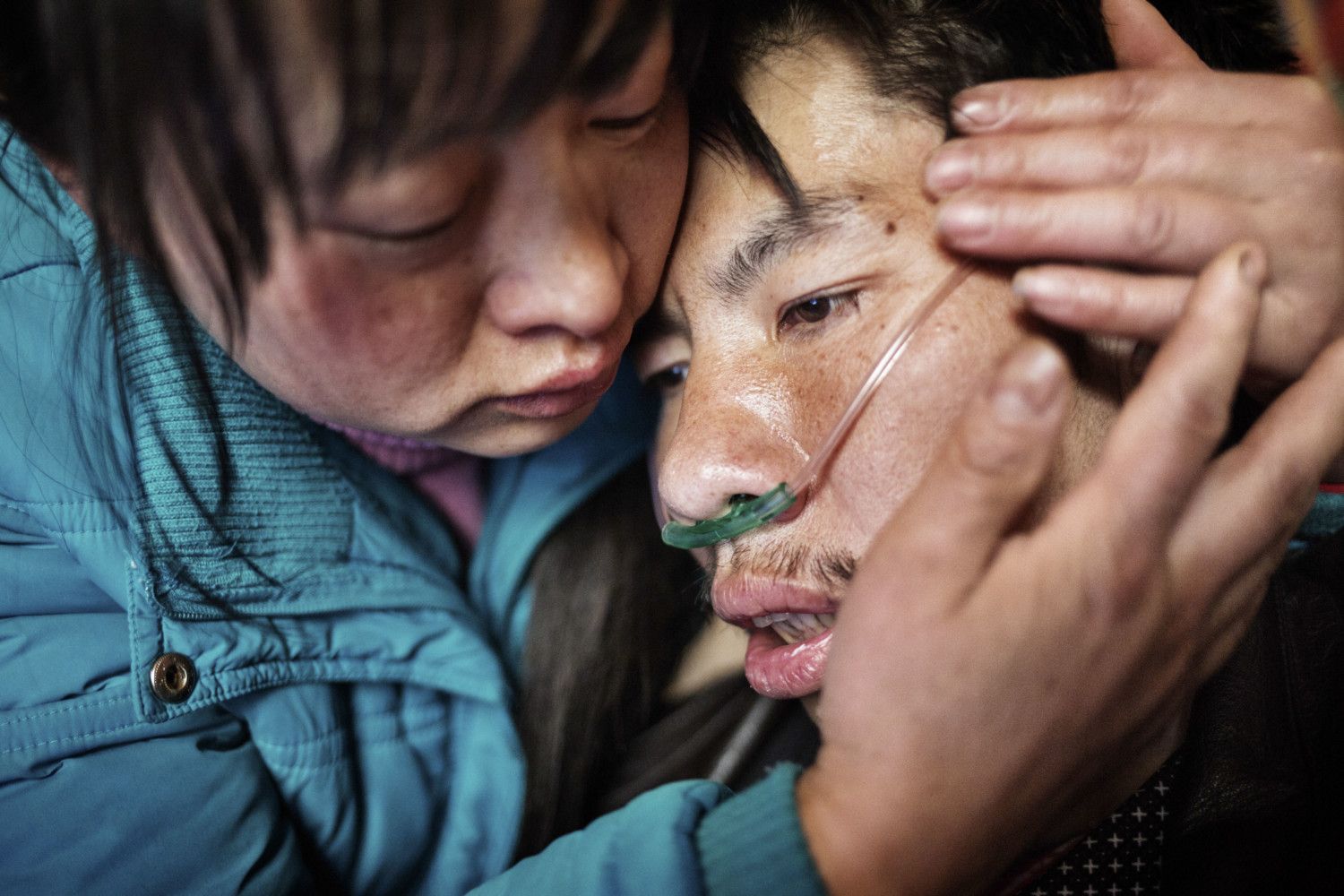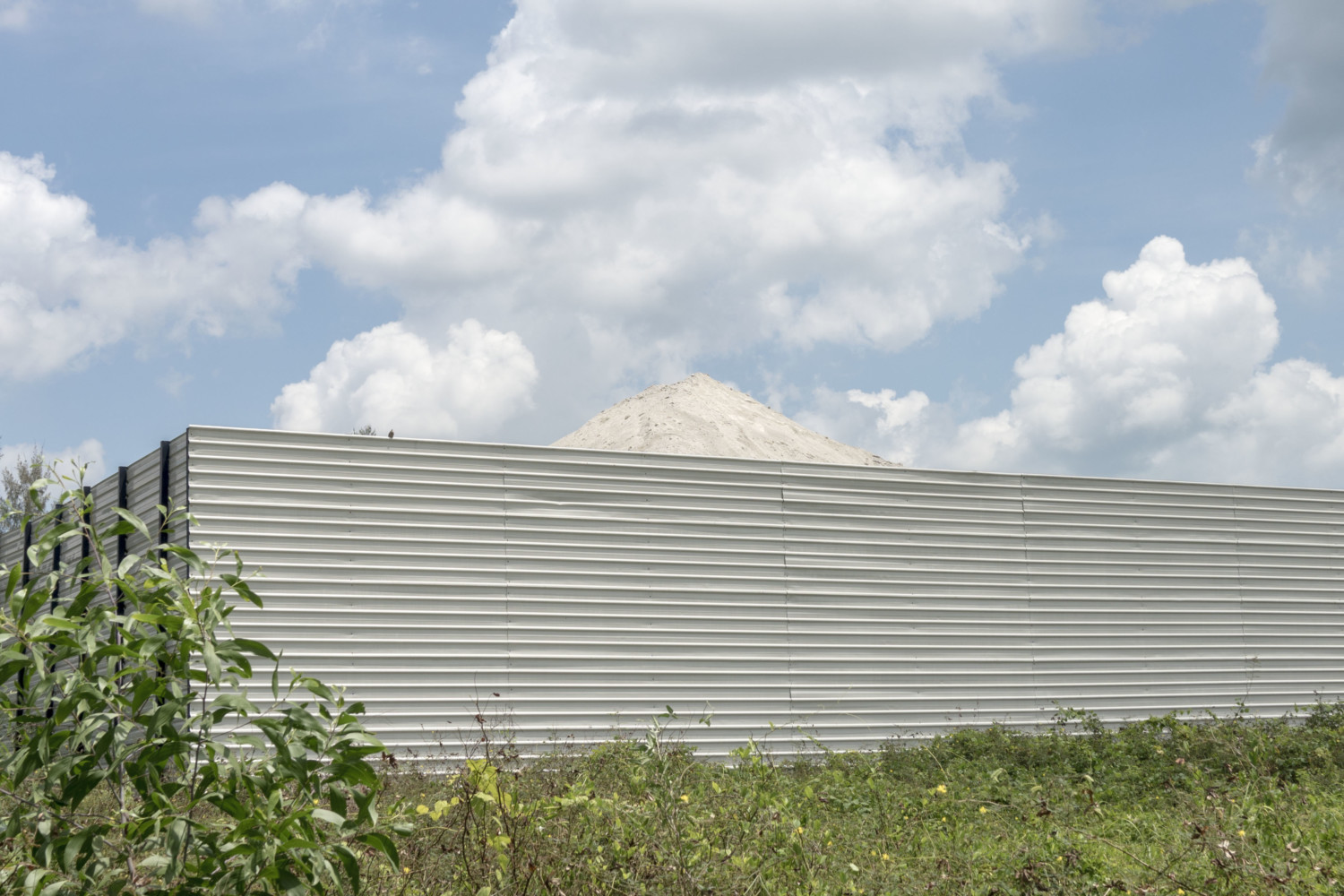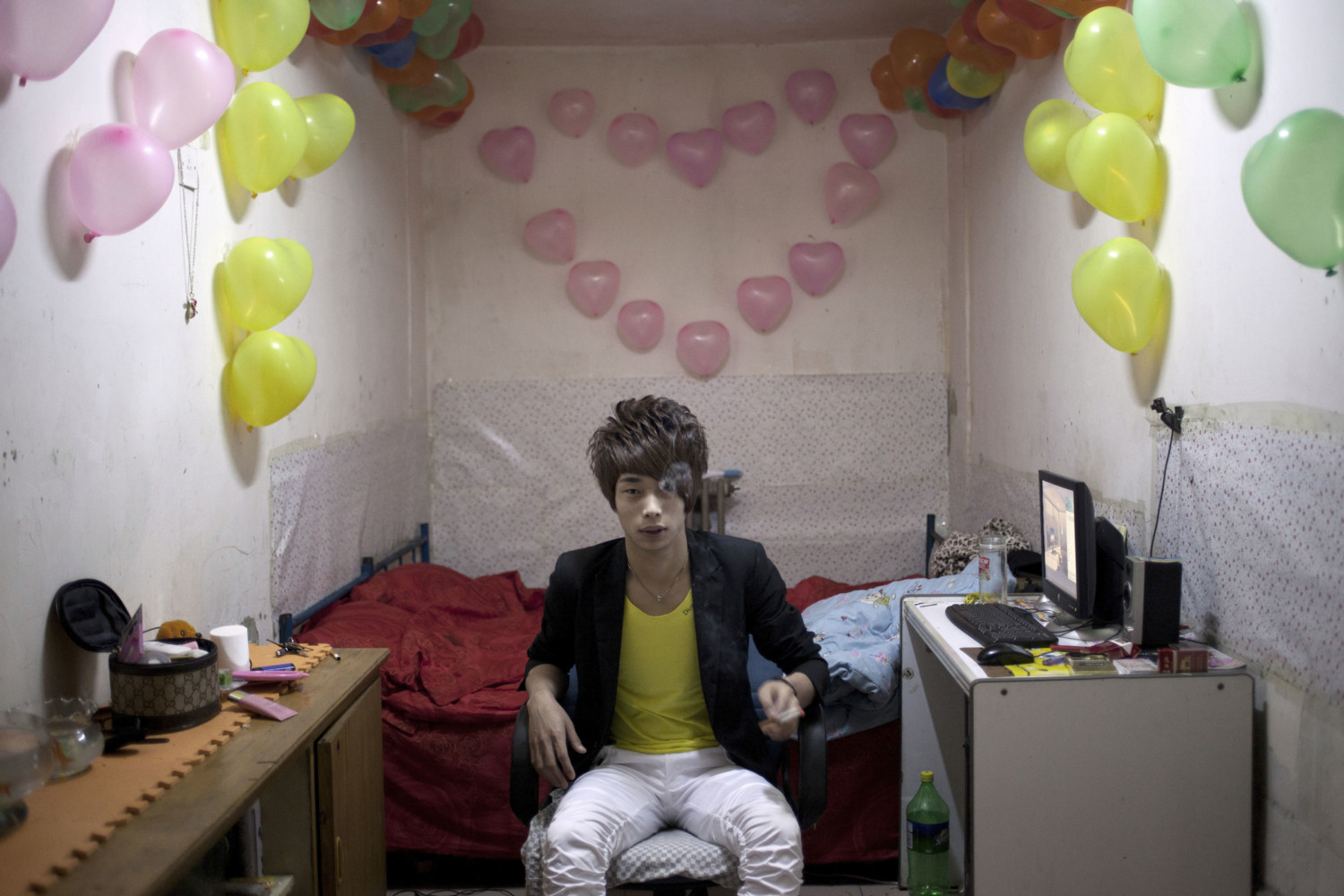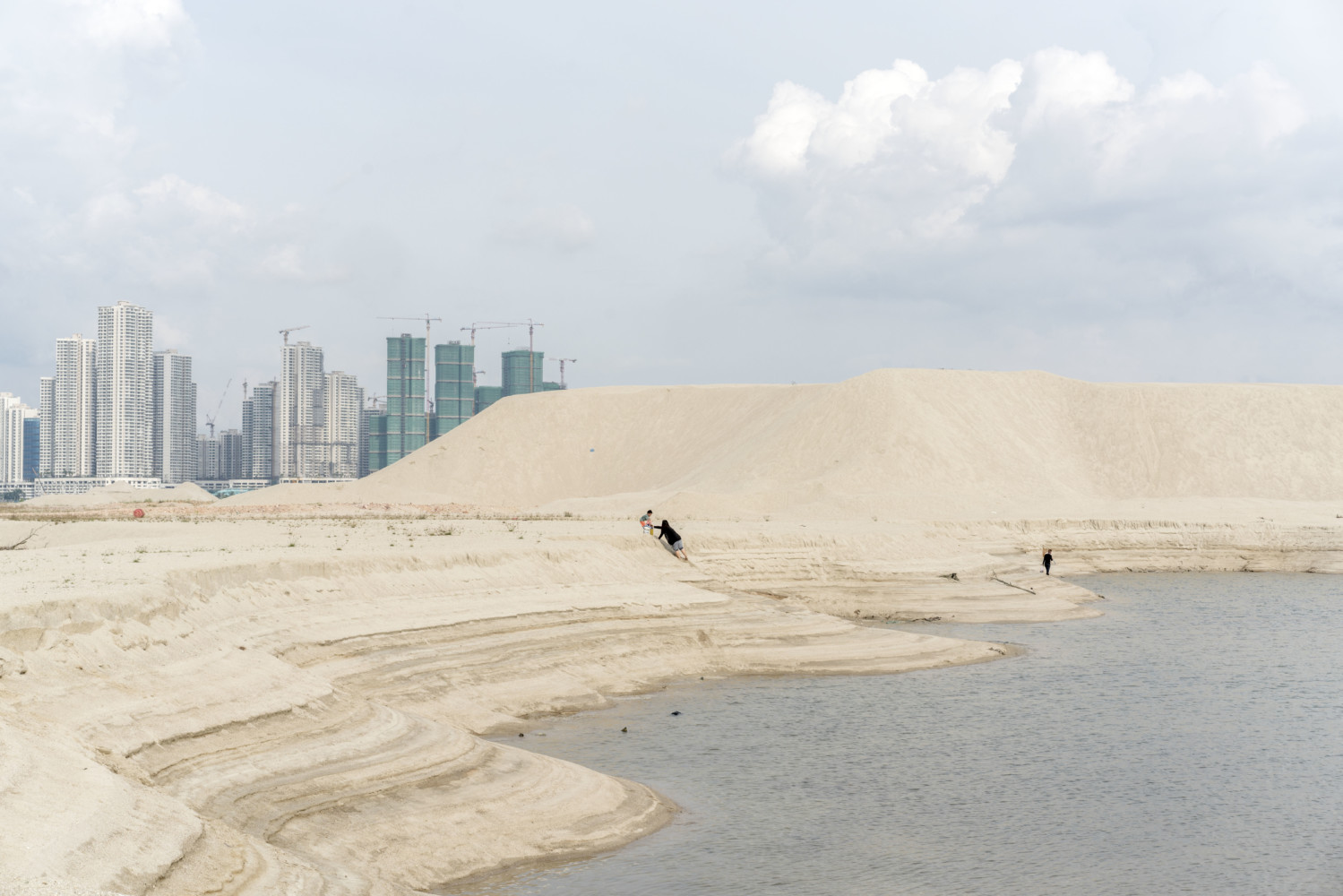Sim Chi Yin From "One Day We Will Understand". Belum-Temenggor rainforest by night. Locals used to say they would either meet Communists or elephants in the forest. Now, only elephants remain. From "One Day We (...)
'll Understand", a book and installation project documenting and imagining the hidden histories of the Communist resistance to British colonial rule in Malaya, 1948-1960. © Sim Chi Yin | Magnum Photos
Sim Chi Yin From "Fallout", 2017. Left: Hatches over silos which in the 1970s held missiles meant to shoot down incoming Soviet warheads, North Dakota, November 2017. / A missile field in rural North Dakota ne (...)
ar the Canadian border which held Sprint and Spartan anti-ballistic missiles designed to intercept attacking nuclear warheads from Soviet missiles coming over the North Pole. These were deployed at the Stanley R. Mickelsen Safeguard Complex near Langdon, North Dakota, in the mid 1970s – a radar and anti-ballistic missile defence site which was shuttered by 1979.
Right: The North Korean city of Hyesan, about 120km from North Korea's nuclear test site, October 2017. / The city of Hyesan in North Korea's Ryanggang province sits across the Yalu River from the Chinese border town of Changbai. Hyesan is 120 km from the Punggye-ri nuclear test site where North Korea is estimated to have conducted six underground nuclear tests since 2006. Japanese news reports in October (2017) said that a tunnel at the site had collapsed, killing as many as 200 North Koreans. Pyongyang's latest nuclear test, on September 3 (2017) recorded as a 6.3-magnitude earthquake in North Korea’s northeast. --- From "Fallout", a series on humans' experience with nuclear weapons, past and present. © Sim Chi Yin | Magnum Photos
Sim Chi Yin From "Fallout", 2017.
DIPTYCH/
Left: The pyramid-shaped Missile Site Control Building stands in the middle of the Stanley R Mickelsen SAFEGUARD Complex. This anti-ballistic missile defense sit (...)
e -- the only one of its kind to be built in the US -- was designed to detect and intercept attacking nuclear warheads from Soviet missiles coming over the North Pole. Nuclear-tipped Sprint and Spartan anti-ballistic missiles were deployed at the site to shoot down the incoming Soviet missiles. The facility, built in the early to mid 1970s at a cost of US$5.7 billion, near Langdon, North Dakota, was fully operational for only a day in October 1975 before Congress voted to shut it down. At the time, it was one of the most advanced radar systems and had among the most powerful computers in the world. With its deterrent effect, it is seen as having been a bargaining chip for the US in the SALT treaties.
Right: Looking from China into North Korea over Mount Paektu, elevation 2,744 m, an active volcano on the border of the two countries. The mountain and the crater lake formed by a volcanic eruption are divided between North Korea and China. The highest mountain on the Korean peninsula and northeast China, it is regarded by North and South Koreans as a sacred place that is their countries’ spiritual home. Imagery of this mountain features in many North Korean propaganda paintings.
October 28, 2017 © Sim Chi Yin | Magnum Photos
Sim Chi Yin From "Fallout", 2017. Left: A border guard in his sentry post on the China-North Korea border, close to a suspected North Korean missile base, October 2017. / As seen from the Chinese side, a guard (...)
inside a sentry border post in North Korea, along a stretch of the border close to where experts suspect is a missile base at Yongjo-ri, said to be about 20 km inland from the border with the Chinese city of Linjiang.
Right: Minuteman II Missile, South Dakota, United States, November 2017. / A Minuteman II Missile sits in the Delta 09 silo outside of the town of Wall in South Dakota, United States. This intercontinental ballistic missile (ICBM) could travel across 12,500 km and deliver its payload -- a nuclear warhead with a yield equivalent to 1.2 megatons of TNT -- in less than 30 minutes. It was in the US nuclear arsenal between 1965 and 1994. The Minuteman missiles were America's first solid fuel ICBMs. By 1965 there were 1,000 Minuteman ICBMs located in six different missile fields across the Central and Northern Great Plains region which were sparsely populated -- and hence might limit casualties in a nuclear war. The Great Plains were also the furthest area from both the Atlantic and Pacific coastlines, preventing them from being struck by Soviet submarine- launched ballistic missiles. From these locations, missiles could also be launched over the North Pole in order to strike targets in the central Soviet Union. A third generation of this missile, the Minuteman III, is the only ICBM still deployed by the United States. As of 2017, there are over 400 Minuteman III missiles on alert in North Dakota, Wyoming and Montana. © Sim Chi Yin | Magnum Photos
Sim Chi Yin From "Shifting Sands", 2017 - on-going.
Tractors plough through piles of sand which have been deposited by sand barges at the Forest City development — a joint venture between a China developer (...)
with the state government and Sultan of Johor. The ambitious project plans to make four artificial islands out of the sea. One has so far been made, with a hotel, residential and commercial complex built on it. It is sold as a development that is green and a model of future urban planning, but has displaced aboriginals and disrupted traditional fishing grounds and eco life. Johor. Malaysia. 2017. © Sim Chi Yin | Magnum Photos
Sim Chi Yin From "Fallout", 2017.
Looking from China into North Korea over Mount Paektu, elevation 2,744 m, an active volcano on the border of the two countries. The mountain and the crater lake formed by a (...)
volcanic eruption are divided between North Korea and China. The highest mountain on the Korean peninsula and northeast China, it is regarded by North and South Koreans as a sacred place that is their countries’ spiritual home. Imagery of this mountain features in many North Korean propaganda paintings. China. October 28, 2017. © Sim Chi Yin | Magnum Photos
Sim Chi Yin SINGAPORE. Tuas. 2017. From "Shifting Sands", 2017 - on-going.
Land reclamation works are on-going at this area of Tuas, Singapore's westernmost area where a new massive container port -- the w (...)
orld's largest in the next 30 years -- is being built. The port authority is using materials dredged from the nearby seabed and earth excavated from tunnelling work on a subway line to cut use of sand by about 70 per cent in the building of this pier -- which will be one of four eventually. Singapore has been short of sand for its sizeable and continual land reclamation and construction work, having bought sand from its neighbouring Southeast Asian countries for decades. © Sim Chi Yin | Magnum Photos
Sim Chi Yin From "Shifting Sands".
Mounds of sand and earth with electric pylons in them are left after much building material was dug up and moved from this patch in the Lanzhou New Area in Gansu, western (...)
China, an entirely new city being carved out of the desert, flattening mountains and bulldozing villages. Gansu. China. 2013. © Sim Chi Yin | Magnum Photos
Sim Chi Yin From "Dying To Breathe", 2011-2015.
After a week of refusing for his wife Mi Shixiu to come see him in hospital, Mr He finally relented and she arrives. He had been practising blowing balloons o (...)
n the doctors' orders -- it was exercise for him to increase his lung capacity. The couple have a childlike innocence, teasing and bantering with each other. He had not wanted to see her again if he did not recover from this trip to the hospital because he had long felt like a burden to her. He asked me to take him to a faraway place and leave him to die. China. 2012. © Sim Chi Yin | Magnum Photos
Sim Chi Yin From "Dying To Breathe", 2011-2015.
Mi Shixiu cradles He Quangui's head as he's struggling to breathe. He eventually recovers his breath. But in the wee hours of the next morning, he tried to kil (...)
l himself to end the suffering.
---
Dying to breathe: former gold miner He Quangui is slowing dying of silicosis - a irreversible but preventable disease he contracted from years of working in small, unregulated gold mines in the Henan province, central China. Ten years after he was diagnosed with silicosis, he is fighting for his life, fighting to keep breathing. In this illness, a type of pneumoconiosis - China's most prevalent occupational disease afflicting millions - silica dust sucked into the lungs during years of blasting rock causes the miner's lungs to harden and eventually fail. Workers who can get good health care and remove themselves from the harmful environment -- particularly those who worked for state mines -- can live a normal person's lifespan. But most of the growing number of victims in China today are migrant workers like Mr He, with no insurance, good healthcare or legal recourse. They typically die in their 30s, leaving families with no sole breadwinners, wives with no husbands, children without fathers. China. 2013. © Sim Chi Yin | Magnum Photos
Sim Chi Yin SINGAPORE. 2017. From "Shifting Sands", 2017- on-going.
A mound of sand protected by a fence on a construction site along the coast in Singapore. Sand is a precious commodity which the Singapore (...)
government keeps strategic reserves of. Having flattened its hills for sand in the 1980s, the wealthy island nation state has bought sand from neighbouring countries in huge quantities over the years, leading to some slapping export bans. Over the past 200 years, Singapore's land area has increased by 25 per cent. © Sim Chi Yin | Magnum Photos
Sim Chi Yin From "The Rat Tribe", 2010 -2015.
Big Rain, 21, a KTV lounge worker, is seen in his basement room beneath Beijing’s north Third Ring Road, Beijing. Originally from Heilongjiang in China’s northe (...)
ast, he’s been in Beijing for the past year. Faced with sky-high property prices, living underground is often the only option for this legion of low-waged migrant workers, who make up one-third of Beijing’s estimated 20 million people. Beijing. China. May 9, 2011. © Sim Chi Yin | Magnum Photos
Sim Chi Yin Ever since former gold miner He Quangui, 41, became ill 10 years ago, his wife Mi Shixiu, 36, has had to take care of his every need and the family. When he is too sickly to walk, she carries him, (...)
even up flights of stairs. Mr He, who once weighed 65kg, is now barely 44kg. They have a very close relationship, and are "still like two teenagers who just fell in love", as a relative put it to me. They sing and horse around together, tease each other and banter. "I don't hope that he will be well enough to work again, but if he is just there every day when I get back, just to chat with me, I'm already very happy," says Madam Mi, who has been married to Mr He since she was 18. Mr He died in August 2015, three months after this story was published and raised over US$16,000 for the family, helping them clear their lifetime of debt.
---
Dying to breathe: former gold miner He Quangui is slowing dying of silicosis - a irreversible but preventable disease he contracted from years of working in small, unregulated gold mines in the Henan province, central China. Ten years after he was diagnosed with silicosis, he is fighting for his life, fighting to keep breathing. In this illness, a type of pneumoconiosis - China's most prevalent occupational disease afflicting millions - silica dust sucked into the lungs during years of blasting rock causes the miner's lungs to harden and eventually fail. Workers who can get good health care and remove themselves from the harmful environment -- particularly those who worked for state mines -- can live a normal person's lifespan. But most of the growing number of victims in China today are migrant workers like Mr He, with no insurance, good healthcare or legal recourse. They typically die in their 30s, leaving families with no sole breadwinners, wives with no husbands, children without fathers. China. 2012. © Sim Chi Yin | Magnum Photos
Sim Chi Yin From "Shifting Sands", 2017- on-going.
A family takes a walk and goes fishing in an area in southern Malaysia now covered with giant sand dunes. The Danga Bay area is earmarked for a massive resi (...)
dency and commercial development, with much of the land reclaimed. Mangroves nearby appear to have been drowned by sand. The world is running out of sand as Asia’s rapid urbanisation is driving up demand like never before. Malaysia. 2017. © Sim Chi Yin | Magnum Photos
